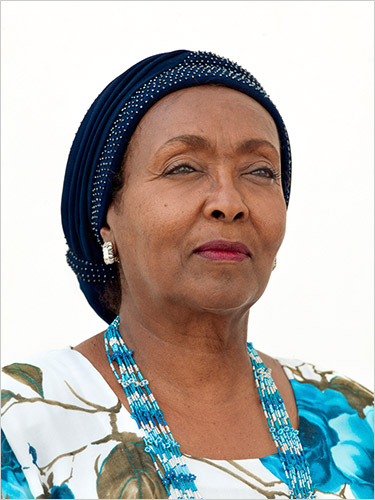- The Senate, bitterly divided on just about every issue, is poised for one bipartisan agreement: reauthorizing the Violence Against Women Act. And men are crucial to this outcome. Fifteen of the Senate’s 17 women are on board. Which means at least 45 co-sponsors need to be men for the bill to get the votes needed the legislation to pass in the Senate. These men should vote “yes” because violence against women and girls is more than a women’s issue.
This lesson has been learned by longtime activists, who have been battling this scourge that affects one in three women globally. Gender-based violence can take many forms: rape and assault used as weapons of war, domestic violence, acid burnings and female infanticide. The list is long.
But ending this violence has one common element: The men who are political leaders — village elders, pastors and mullahs, fathers, brothers, husbands and boyfriends — need to come forward and say stop. It may sound surprising, but this has not happened enough, according to advocates from around the world. They’re now trying to reach men, with success.
“We paused after 30 years to see what was wrong with our strategy. Why was this still happening?” said Edna Adan Ismail, a nurse-midwife and the founder of Somaliland’s first hospital. “We realized: By making it a ‘women’s issue,’ we were letting men get off easy.” Her life’s work has focused on ending the traditional practice of female genital mutilation, which leaves 98 percent of her patients scarred for life.
Where male village leaders saw this mutilation as a religious or cultural obligation, Ismail redefines it now as a violent act against their young daughters — who need the fathers’ defense. “This is your daughter,” she tells them, “her health, her life. Show your strength. Show how brave you are. This battle should not be left to little old women like me.”
The men are stepping up. She also is training midwives and mothers to become confident advocates.
In many cases, men do not grow up with positive role models who demonstrate alternative ways to behave with women. Actress Maria Bello, whose activism in Haiti led to the creation of the local women’s organization WeAdvance, says they get results by carefully weaving violence prevention into adult education classes geared toward men and women.
She says “light bulbs go on” among male students when conversations turn to domestic violence. “We got a letter from a gentleman that said, ‘I did not know I was not supposed to beat my wife,’” she said. “These behaviors are learned, and here are the seeds of powerful change.”
Activists in Iraq now include traditional leaders like sheikhs in their outreach activities. They run rural programs that include families in agricultural projects — which have resulted in an increase in income for women and men, an increase in school enrollment and a 60 percent drop in domestic violence
Indonesia enlisted religious leaders to set up shelters and crisis centers for women abused during the social upheaval of the 1990s. The government-led campaign hosted male-only events to counter misinformation about Islamic law, counseled male perpetrators and mounted a mass media campaign that stigmatized violence against women. Dramatic changes in attitude have resulted.
Violence against women is not just an extreme human rights violation. It’s a public health epidemic and a barrier to solving global challenges like extreme poverty, HIV/AIDS and international conflict. It is also just plain expensive.
In Canada, for example, about a third of abused women leave the workforce entirely, losing income. In India, it’s estimated that an incident of violence causes a woman to lose an average of seven working days. Colombia estimated in 2003 that it loses almost 4 percent of its gross domestic product because of the indirect costs of domestic violence.
In most developing countries, health systems do not have the capacity to offer services for victims, who end up bearing the physical, emotional and economic costs of violence themselves. This is not sustainable: Prevention is the better part of response.
Enlisting men and boys on this issue has proved to lower the rates of violence against women. In fact, changing the attitudes that allow violence against women and girls to go unchecked requires that men be part of the change.
Men must become allies — not just perpetrators to be put away.
Ritu Sharma is co-founder and president of Women Thrive Worldwide, the leading organization advocating with the U.S. government on global women’s issues.
By Ritu Sharma (Politico)

No comments:
Post a Comment